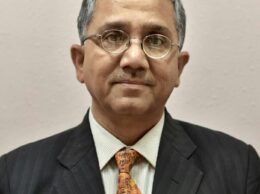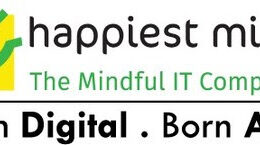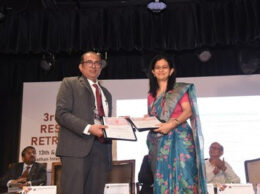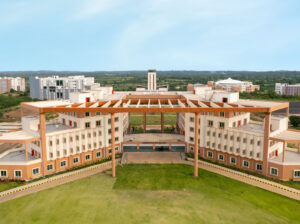Mumbai: Junior Research Fellowship (JRF) is the flagship scheme of the University Grants Commission (UGC) to motivate candidates for undertaking advanced studies and research leading to MPhil/PhD Degrees in Humanities and Social Sciences including Languages and Sciences. The scheme is popularly known as NET-JRF. JRF scheme of the UGC is open to candidates who qualify in the National Eligibility Test-Junior Research Fellowship (NET-JRF) of the UGC and the UGC-Council of Scientific and Industrial Research (UGC-CSIR) joint test.
The tenure of fellowship is initially for two years under the JRF scheme. After expiry of this period, the work of the fellow will be evaluated by experts. If the research work is found satisfactory, his/her tenure will be extended for a further period of three years under the enhanced emoluments of the Senior Research Fellowship (SRF). Here, SkillOutlook presents key benefits and incentives offered under JRF.
Fellowship: The eligible JRF candidates are entitled to get monthly fellowship of Rs 25,000 for the initial two years. Once the tenure is extended and the candidate becomes eligible for SRF, he/she will be eligible to get Rs 28,000 per month for a further period of three years. Tenure of fellowship is for five years from the date of joining. MPhil is for two years. Fellowship will be granted upto date of submission of PhD Thesis or 5 years whichever is earlier.
Annual Contingency: Rs.10,000/-p.a. is provided for initial two years for Humanities & Social sciences JRF candidates. After first two years, the said amount is increased to Rs.20,500/-p.a. for remaining tenure.
For science group candidates, annual contingency amount is Rs.12,000/-p.a. for the initial two years while post two years the amount is increased to Rs.25,000/-p.a for remaining tenure.
House Rent Allowance (HRA): There are three scenarios how the institutions can provide HRA to the JRF eligible candidates. First, suitable single-seated hostel accommodation may be provided to the candidates in the institutions. In such cases, the fellow is eligible to draw only hostel fees excluding mess, electricity, water charges, etc. HRA is not permissible for those candidates who are staying in hostel accommodation.
In the second case if hostel accommodation is not available, the fellow may be provided with single accommodation by the host institution. In such cases, the rent paid by the fellow on actual basis may be reimbursed subject to the ceiling of HRA as per Govt. of India norms.
In the third case, if the fellow makes his/her own arrangements of accommodation, he/she may be entitled to draw HRA as per categorization of cities by the Govt of India. All kinds of leave should be approved at the level of the University/College/Institute. Prior approval of the University/Institution/College is mandatory for all types of leaves.
Medical: The JRF scheme guidelines say that no separate/fixed medical assistance is provided. However, the fellow may avail of the medical facilities available in the educational institution.
Leave: Fellow candidates are entitled for a maximum period of 30 days of leave in a year in addition to public holidays. Further, candidates are eligible for maternity/ Paternity leave as per Govt. of India norms issued from time to time at full rates of fellowship once during the tenure of their award. They are not entitled to any other vacations.
In case of women candidates, in addition to above leave facilities, ‘Intermittent Break’ for a maximum period of one year may also be permissible to female candidates. The leave can be availed 3 times during the entire period of fellowship. However, the total duration of leave shall not exceed one year. The scheme guideline has clearly mentioned that this Flexi Time period should not be counted towards the tenure of the fellowship and thus effectively the total period of fellowship will remain the same.
Academic leave: Academic leave without fellowship shall be permissible only for one year throughout the tenure (for any kind of academic assignment/teaching/foreign visit in connection with research work). As per the JRF scheme guidelines, the period of leave without fellowship will be counted towards the tenure. Expenditure on foreign visit in connection to research work cannot be claimed from the UGC.
Escort or reader facility for Persons with Disabilities (PwD): JRF scheme provides Rs. 2,000/-p.m. to physically Assistance Handicapped and blind candidates for Escort or reader facility.









